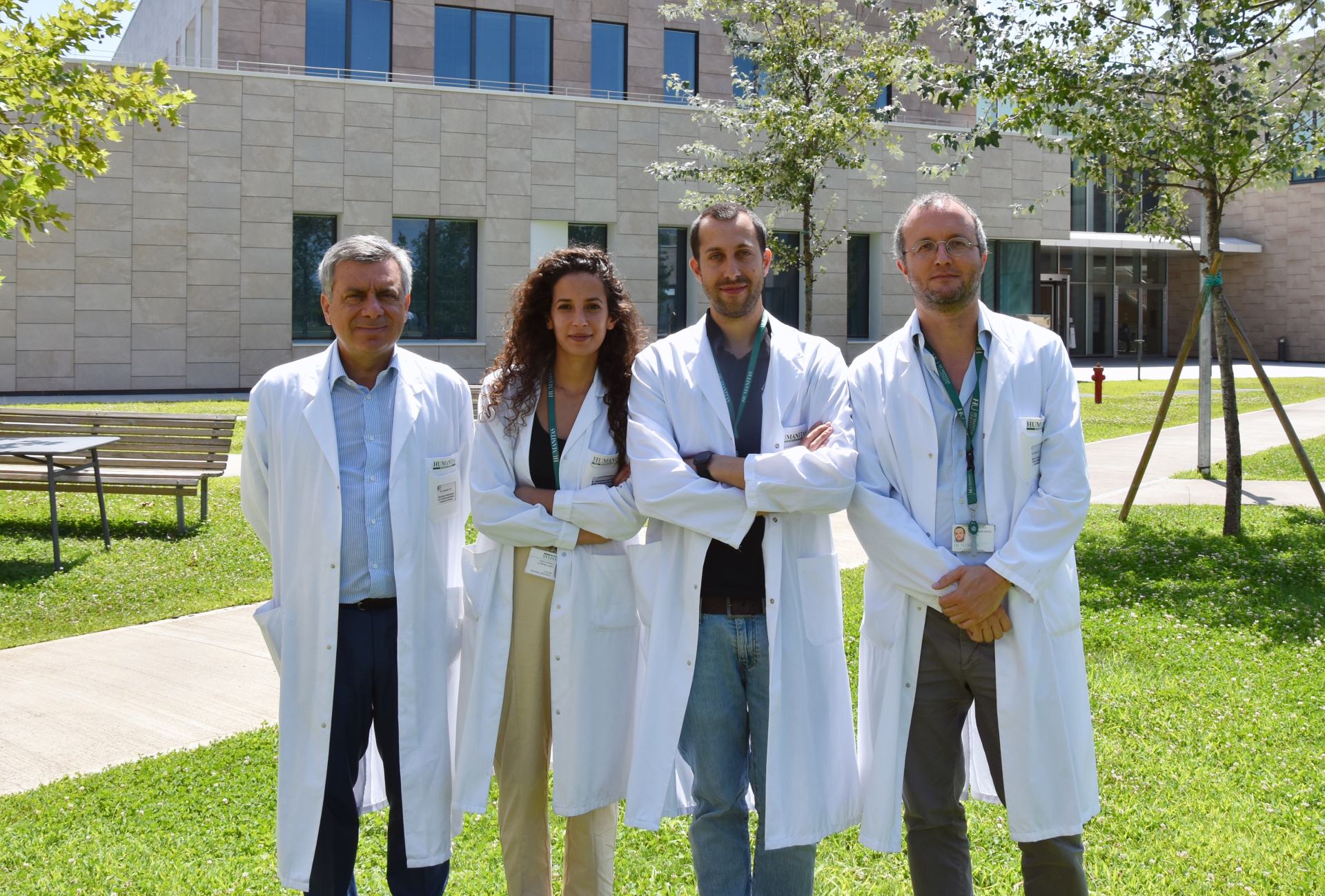Autoimmunity could explain cardiac complications in long Covid patients

50% of patients hospitalized for COVID-19 with biomarkers of cardiac damage suffer from heart complications even months after discharge. Scientists at Humanitas Research Hospital studied the mechanism behind the phenomenon: an autoimmune reaction that could explain also other manifestations of Long Covid
Circulating in our bodies there are thousands of immune cells with the potential to recognize and attack our own organs and tissues. Fortunately, these self-reactive cells are equipped with a “tolerance” program that prevents their activation. According to a new study published today in the journal Circulation and involving COVID-19 patients with lasting cardiac complications, the encounter of random self-reactive cells with SARS-CoV-2 virus is able to accidentally turn off the program, triggering the cells against the cardiac tissue. This autoimmune mechanism, called “bystander loss-of-tolerance”, could persist for months after the infection is over and potentially explain other manifestations typically associated Long COVID.
The study is a joint effort between the research group of Prof Marinos Kallikourdis, head of the Adaptive Immunity Lab at Humanitas Research Hospital, and the group of Prof Gianluigi Condorelli, director of the Cardiovascular Department and head of the Immunology in Cardiovascular Pathologies Lab. It was conducted on blood samples from patients hospitalized for COVID-19 at Humanitas Research Hospital and leveraged the expertise and collaboration of the Cardiovascular Imaging Unit led by Prof. Marco Francone. Funding sources included, among others, the Italian Ministry of University and Research and Fondazione Umberto Veronesi.
Long Covid and cardiovascular complications
“Cardiovascular complications are common in patients with COVID-19, especially those who have been hospitalized due to the infection,” explains Gianluigi Condorelli. “In fact, previous studies tell us that half of the patients hospitalized for COVID-19 with high troponin levels – a biomarker of cardiac tissue damage – show abnormalities in Cardiovascular Magnetic Resonance for up to 6 months after recovery.”
There are two possible scenarios that could explain damage to organs and tissues as a result of viral infections such as COVID-19: direct aggression by the virus, or collateral damage due to the immune response triggered by the virus and then turned – by accident – against the self. The two mechanisms can obviously coexist and concur to the damage.
“The second mechanism could explain damage to tissues that the virus – in this case SARS-CoV-2 – cannot attack directly,” Prof. Condorelli continues. “And it could also explain why this damage persists even after infection, that is, when the virus is no longer present, as happens in Long COVID.”
In search of the culprit: the bystander loss-of-tolerance effect
To understand what happens in the case of cardiovascular complications, researchers analyzed samples from patients admitted to Humanitas Research Hospital with COVID-19, focusing on those who, 6 months after discharge, still showed cardiac damage in MRI. These were patients with no prior history of cardiovascular disease.
“By analyzing the samples, we discovered an abnormal activation of B cells and identified the presence of specific auto-antibodies that can react against cardiac cells. These auto-antibodies were absent in patients hospitalized for COVID-19 with no signs of cardiac damage and, as we later showed in-vivo, are sufficient to trigger an autoimmune reaction against the heart,” explain researchers Marco Cremonesi and Arianna Felicetta, first authors of the paper published in Circulation.
“The data we collected, although still limited because of the small number of patients involved, support our initial hypothesis,” says Marinos Kallikourdis, who coordinated the research. “In these patients cardiac damage is compatible with a mechanism called ‘bystander loss of immunological tolerance’.”
The Humanitas researchers’ hypothesis is that during COVID-19 infection random self-reactive immune cells accidentally receive so-called “co-stimulation” signals from the infection due to an encounter with the virus. As a direct result, they turn off the tolerance program – a brake system that, under normal conditions, prevents these cells from attacking our own tissues.
“The loss of immunological tolerance could also explain the variety of symptoms of Long COVID: although it is a single mechanism, it can in fact produce very different clinical outcomes, depending on what tissue the self-reactive immune cells that lose tolerance after the accidental encounter with SARS-CoV-2 happen to react against” Kallikourdis continues. “This means that the same mechanism could explain other immune-mediated complications associated with Long COVID, such as the ones involving the nervous system.”
If further confirmed, the findings once again demonstrate the key role played by immunity in heart diseases and explain the already demonstrated efficacy of immunomodulatory drugs in COVID-19 patients.